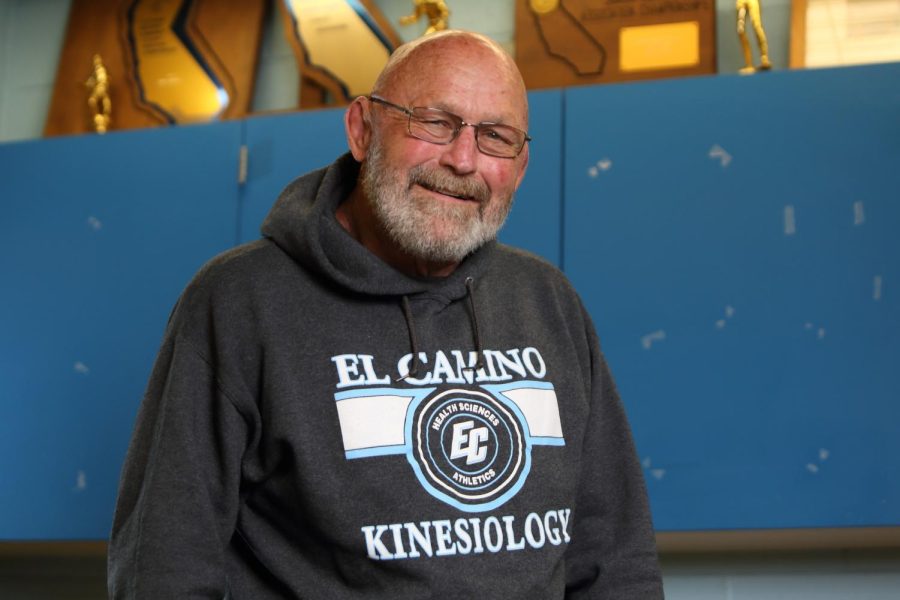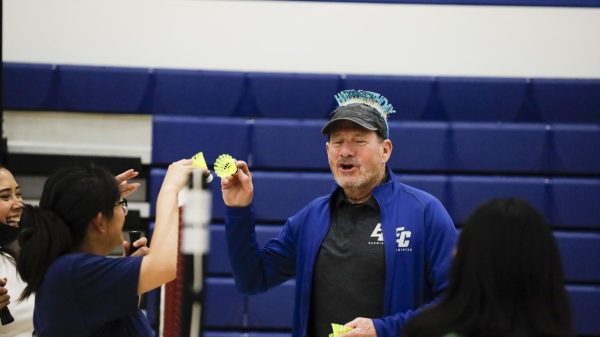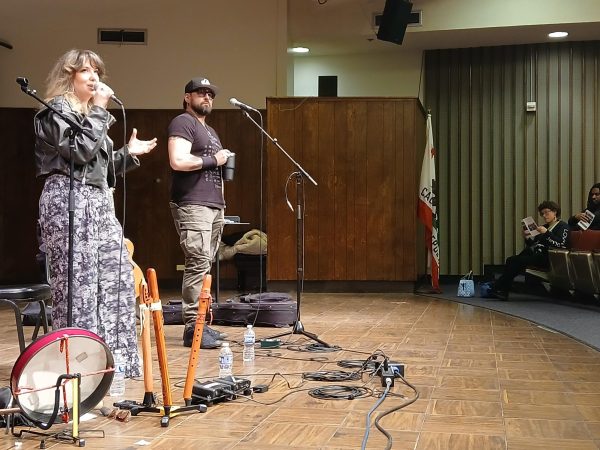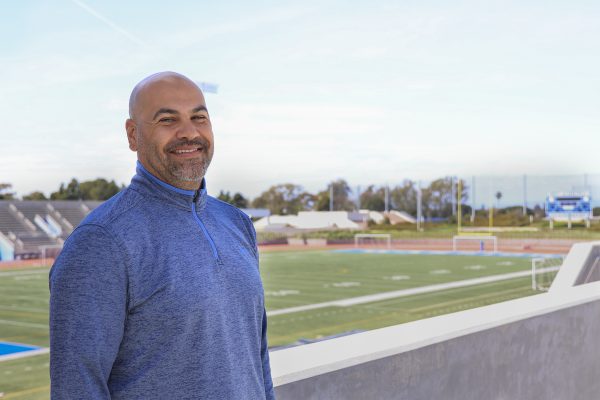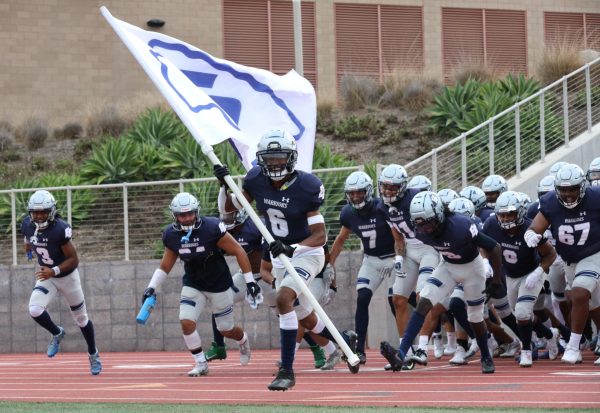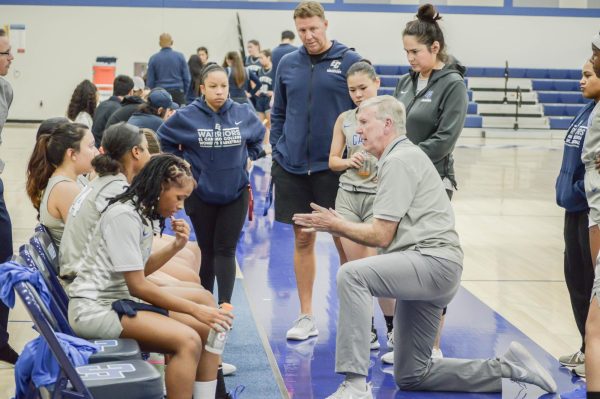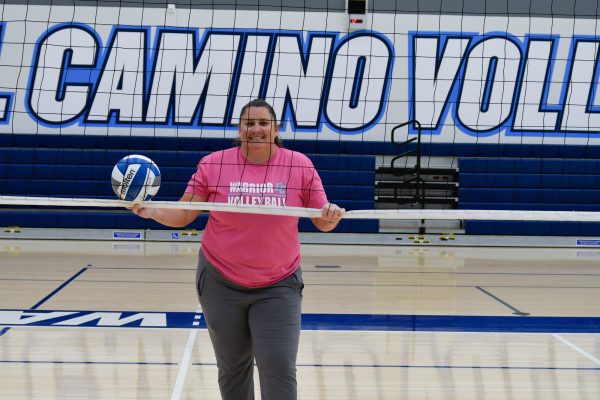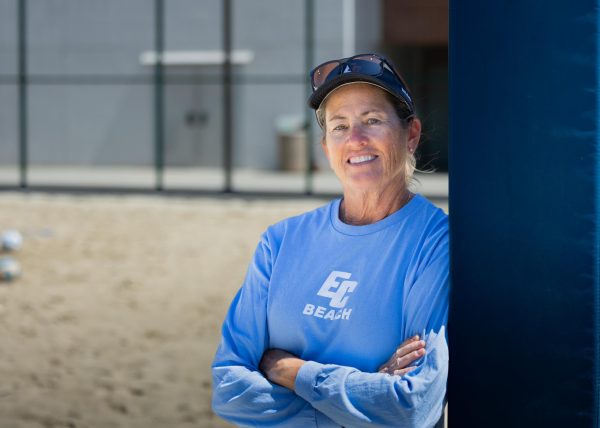The Journeyman: From playing to coaching and refereeing: The wrestling legacy of Tom Hazell
El Camino College health sciences and athletics Professor Tom Hazell was inducted into the National Wrestling Hall of Fame in 2012 and the California Wrestling Hall of Fame in 2015. Hazell was head wrestling coach at El Camino for 12 years. (Raphael Richardson | Warrior Life)
Tom Hazell is known for his legacy left in wrestling in many different ways, including the biggest mark at El Camino College as a student athlete and as head coach.
Hazell, 73, grew up in Inglewood where his love of sports began. He attended Inglewood High School where he was involved in wrestling, football, and track and field until he decided to attend El Camino.
At first Hazell was inclined to play football at El Camino after having a positive conversation with then coach Ken Swearingen. Hazell was originally thinking about football because he thought he was better at it than wrestling at the time.
Following the talks with Swearingen, Hazell had a conversation with El Camino wrestling coach Dave Hengsteler. Hengsteler invited Hazell out to a steak dinner where they talked about wrestling his first year at El Camino and playing football the following year, which intrigued Hazell.
Hazell chose to wrestle to start at El Camino, but planned on playing football the following year.
“Well, the steak dinner was [a] big deal because no coach has ever gone out of their way with that process. I definitely enjoyed it,” Hazell says.
He would never look back from the decision to become a full-time wrestler. At El Camino, Hazell won the 1971-’72 California Community College Athletic Association State Championship, Heavyweight; State MVP and Community College All-American. He never did go back to play football the year after, but still thinks about it.
“I was one steak dinner away from being a professional football player. That’s all Kenny had to do,” Hazell jokingly says.
After his time at El Camino, Hazell had offers from top Division 1 wrestling programs at Oklahoma State University, Washington State University, Michigan State University and University of California, Los Angeles.
Hazell chose Oklahoma State after having a great visit in the town of Stillwater, but he was not aware of what he was stepping into.
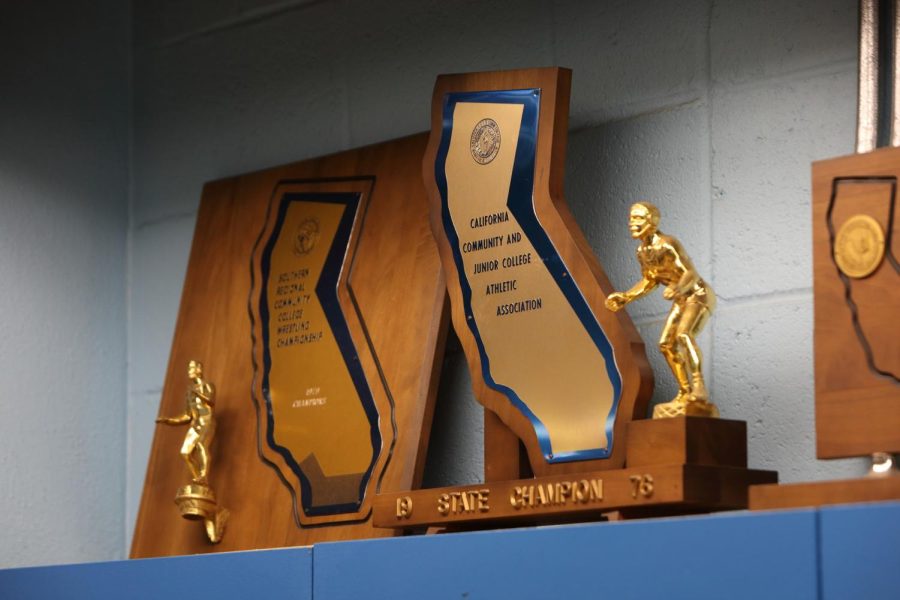
“I was very naive at the time, understanding how much an offer to wrestle from them meant,” he says.
Oklahoma State was the top tier elite program for Division 1 wrestling. They had won 33 National Championships at the time, the next closest team had only won five.
Oklahoma State’s wrestling team was on another level. By comparison, UCLA’s wrestling team struggled to beat community colleges in the South Bay because of the massive surge of wrestling at the time including at ECC.
The resurgence of wrestling programs in the South Bay came because of wrestling being a high interest in the 1970s with the start of the sport in the South Bay, leading to the talent rising.
When Hazell moved to Stillwater he realized how big of a deal wrestling was to the community.
With Oklahoma State’s success, Stillwater also had the top wrestling high school in the town as well. Hazell came to realize that he fed into the network of the Oklahoma small town.
“It felt like home with the wrestling background and the traits of the town,” Hazell says.
Concluding his time at Oklahoma State, Hazell had won 1st Place in the 1974 Big 8 Wrestling Tournament, 2nd Place in the 1973 Big 8 Wrestling Tournament and was named Oklahoma State All-American, Heavyweight, twice. He continued his career after college, representing team USA in tournaments, including in Mexico, Switzerland and Russia.
“At this time all I thought about was wrestling, it just felt like my routine. Just get up and show up,” he says.
After finishing his career in wrestling Hazell stayed in Oklahoma for a stint where he was a part of the coaching staff at Oklahoma State as an assistant.
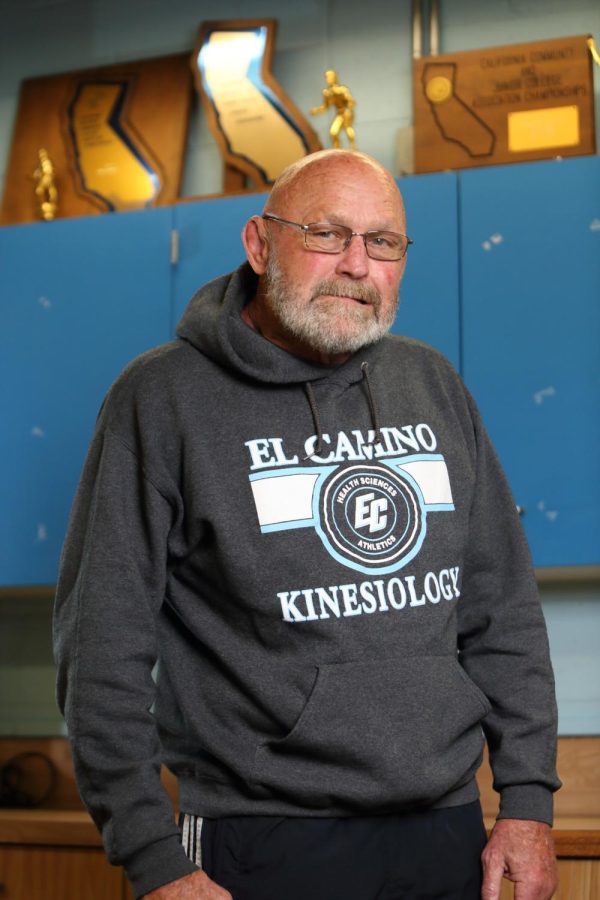
In 1978, Hazell received a job offer to teach in San Diego as a physical education instructor, prompting him to make the move back to California. Hazell would only teach there for two weeks before he eventually received the job offer to coach wrestling full time at El Camino.
On his way back to California, Hazell received a call from ECC wrestling coach Donald Conway. He talked to Hazell about how he’d received an offer to be the head coach for the wrestling team at UCLA and how he really wanted him to apply for the El Camino wrestling head coach position.
The athletic director, Al Greenleaf, approved of Conway asking Hazell to come back and coach because of the legacy Hazell had left at El Camino.
Hazell was a trustworthy candidate who could continue the success for the Warrior’s wrestling team and make strides in the program’s success.
Hazell was estatic, still having love for El Camino. For the first two weeks, Hazell would drive from San Diego, where he was still teaching, to El Camino where he would coach after teaching.
Hazell realized his future would be to teach his passion and says it was his “easiest decision of his life.” After two weeks Hazell went full time to coach wrestling at El Camino, and left the job in San Diego.
Hazell fulfilled his hard work for his players holding the title of wrestling coach from 1979-’91 at El Camino.
After 12 years of coaching at El Camino, the wrestling program was dropped because Hazell was not able to coach anymore. He had been thrown to the ground while wrestling and hit his head.
The doctors told Hazell that he had to stop wrestling or else he would become paralyzed and had to step down as the head coach.
This changed Hazell’s whole life. His life had revolved around being physical and having to wrestle. Hearing this news destroyed him.
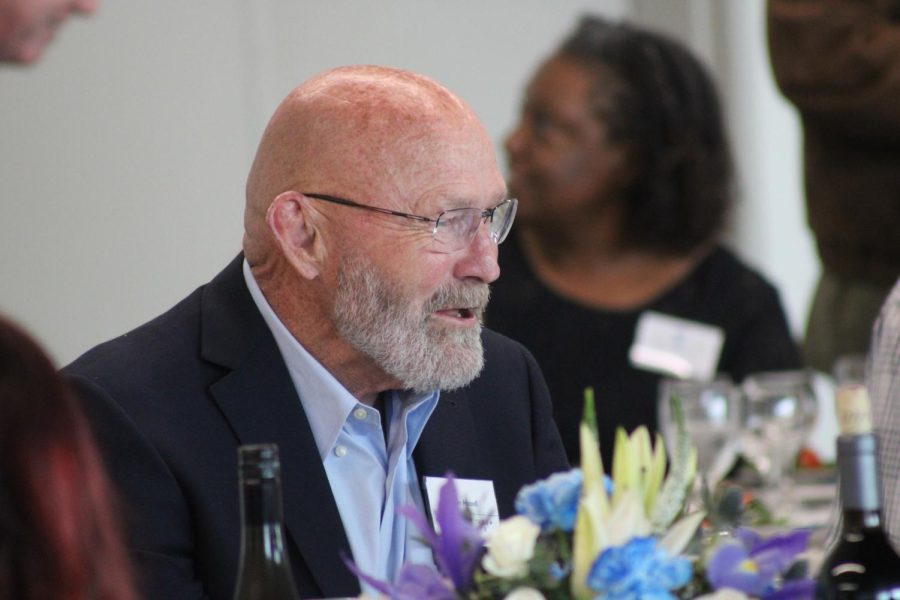
Hazell had a talk with the dean and the athletic director and they told him they were going to look for a new coach, but as soon as Hazell stepped down they dropped the program.
“And then they said ‘Oh we’ll bring it back in a year,’ and they didn’t do it,” Hazell says.
He took some time off, but continued to stay in the wrestling world as an official, adding to his abundant resume.
Then the wrestling coach at West High School, Ken Wyatt, who was Hazell’s assistant coach at El Camino while he coached the program, called and said he was leaving the wrestling coach job to coach his daughter in cross country and softball.
He took that job fast, to be back in the coaching scene without having to be physical, and his son attented the high school.
Hazell coached at West for 10 years and had success – his own son and teammates won All-American, took third place in the state and had “a couple of other state winners.”
Hazell made his way back to El Camino full time where he was hired as a fitness instructor, teaching Physical Education 10A and 10B.
“Well, if I love doing it, I might as well get paid for it,” he says.
Hazell decided to come back to El Camino because “It feels like home to me, all the old connections, and my [daughter]. Hazell’s daughter, Liz Hazell, is the head coach for the women’s volleyball team at El Camino and has been for four years.
The family has always been competitive in their respectful sports lives, and drive each other to suceed.
Hazell says wrestling means so much to him and it frustrates him to not be able to wrestle, and not get the rush through his veins. The reason he’s always been a part of wrestling is to get those endorphins – you get “the endorphin pop and [it gives] you that high for a second with how much empowerment is in wrestling.”
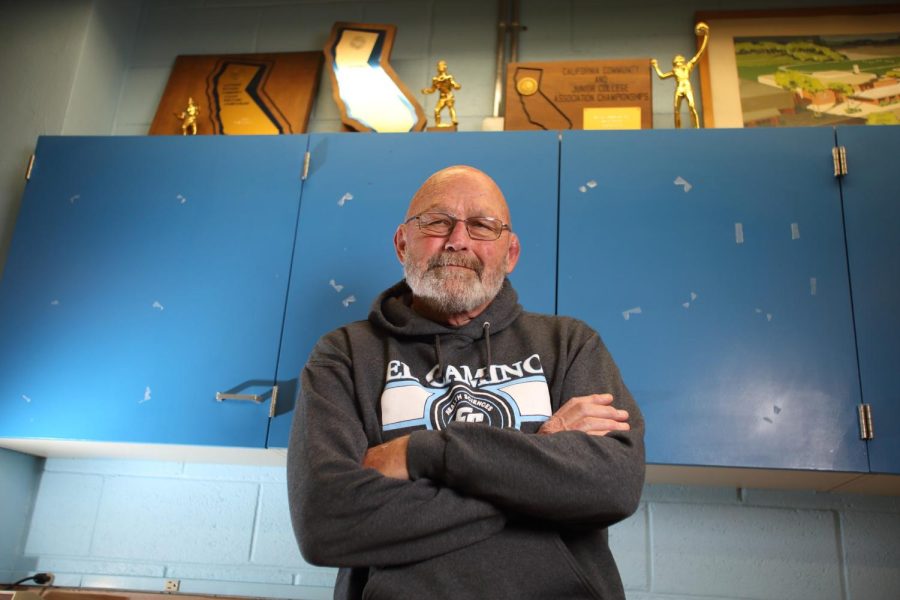
Hazell has always credited his coaches for his success and says his coaches supported him put him in a great training program.
Myron Miller, who was an assistant wrestling coach at El Camino during Hazell’s time noted his success based on how coachable Hazell was.
“It was easy for sure because anyone who is coachable and puts in the hard work outside of the real work will be successful, so he was,” Miller says.
Miller is credited with having a great coaching influence on Hazell.
“Hazell would meet me after hours at community colleges,” Miller says. “Because of his head down and work mentality, he constantly was getting better.”
At the end of Hazell’s time in wrestling, he was inducted into the El Camino College Hall of Fame in 2006, the National Wrestling Hall of Fame in 2012 and then the California Wrestling Hall of Fame in 2015. Hazell felt honored that he was seen as having a huge impact on wrestling.
Hazell is not so inclined on being praised or receiving honors, but enjoys the support.
“Usually the best feeling in wrestling is being able to physically dominate your opponent, but getting the honor from your peers is nice,” Hazell says.
Editor’s Note:
- Photos were enlarged on Monday, June 12.


